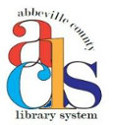Reviews
Choice
Copyright American Library Association, used with permission.
The collaboration between scholar Robert Hollander and poet Jean Hollander has resulted in an impressive new annotated verse translation of Inferno. The great medieval poem has never lacked for translators and commentators, and past versions of the poem in English have taken many different approaches to the difficult task of rendering Dante's complex and rich creation. Including facing original text, the present volume makes the poem accessible to lay reader and appealing to the specialist: the translation is both faithful to the original and highly readable; the introduction and notes are dense without being overly scholarly; the bibliography consists predominantly of studies in English, encouraging further investigation by English-language readers. This translation's greatest innovation--one that makes this Inferno truly a poem for the new millennium--is its availability on Princeton Dante Project , where readers can find both the Italian and English text, a voiced Italian reading, fuller commentaries, and links to an important database of commentaries. Although this volume does not supplant other versions in English, most notably The Divine Comedy of Dante Alighieri, ed. by Robert M. Durling (CH, Oct'96), it certainly contributes a highly worthy new Inferno that is the mature fruit of years of scholarly, pedagogical, and creative work. All libraries. R. West University of Chicago
Choice
Copyright American Library Association, used with permission.
In its notoriously overcrowded field, this excellent work stands out in several ways. Consistently accurate and readable, its fluent iambic pentameters (occasionally rhymed) convey a good sense of the life and movement of Dante's verse; its thorough and substantial footnotes will be more than adequate for the needs of all but the expert reader; it provides useful contextualizing excerpts from several of Dante's most important sources, a unique inclusion; and the translator contributes a provocative and deeply reasoned introduction, which will be helpful in guiding the general reader but will also stimulate scholars. Among verse translations aimed at a wide audience, this ranks with Allen Mandelbaum's classic version (1980) for readability and achieved poetic effect, although other recent versions--e.g., those of Mark Musa (CH, Oct'97), Robert Hollander and Jan Hollander (CH, Jun'01), and (in prose) Martinez and Durling (CH, Oct'96)--have more to offer readers needing extensive scholarly annotation. This seems to be a golden age of new Inferno translations--a half dozen have appeared in the last five years--and Esolen's is a worthy addition to the company. ^BSumming Up: Highly recommended. Lower- and upper-division undergraduate and general collections. S. Botterill University of California, Berkeley
Library Journal
(c) Copyright Library Journals LLC, a wholly owned subsidiary of Media Source, Inc. No redistribution permitted.
Inferno is the first of the three books of The Divine Comedy being freshly translated by the Hollanders, with Purgatorio and Paradiso scheduled for release in 2002. This edition offers their interpretation on the right-hand page with Dante's original Italian text on the left. Robert Hollander has a very esteemed reputation as a translator of Dante and others, so this no doubt would be a worthy addition to literature collections already possessing previous versions. (c) Copyright 2010. Library Journals LLC, a wholly owned subsidiary of Media Source, Inc. No redistribution permitted.
Publishers Weekly
(c) Copyright PWxyz, LLC. All rights reserved
A veteran translator of Lucretius and Tasso, Esolen ornaments his dual-language edition with Dor illustrations, some rhyme and blank verse-and the results hold their own among the many underworld competitors: "Midway upon the journey of our life/ I found myself in a dark wilderness,/ for I had wandered from the straight and true." A number of texts crucial to Dante, and some by him, appear in appendices; a fulsome section of notes is also included. (Dec.) (c) Copyright PWxyz, LLC. All rights reserved
Publishers Weekly
(c) Copyright PWxyz, LLC. All rights reserved
The opening canzone of Dante Alighieri's The Divine Comedy has appeared in almost every imaginable variety of English translation: prose, blank verse and iambic pentameter; unrhymed or in terza rima; with and without the original Italian; with commentary ranging from a few notes to a full separate volume. The translations have been produced by poets, scholars and poet-scholars. In the past six years alone, six new translations of the Inferno have appeared (including Robert Pinsky's 1994 rendition for FSG) and at least 10 others remain in print, including Allen Mandelbaum's celebrated 1980 translation (Univ. of Calif. Press and Bantam) and the extensively annotated editions of Charles Singleton (Princeton Univ. Press) and Mark Musa (Univ. of Indiana Press), the latter two unlikely to be surpassed soon in terms of extensiveness of commentary. Dante scholar Robert Hollander and the poet Jean Hollander bring to this crowded market a new translation of the Inferno that, remarkably, is by no means redundant and will for many be the definitive edition for the foreseeable future. The heart of the Hollanders' edition is the translation itself, which nicely balances the precision required for a much-interpreted allegory and the poetic qualities that draw most readers to the work. The result is a terse, lean Dante with its own kind of beauty. While Mandelbaum's translation begins "When I had journeyed half of our life's way,/ I found myself within a shadowed forest,/ for I had lost the path that does not stray," the Hollanders' rendition reads: "Midway in the journey of our life/ I came to myself in a dark wood,/ for the straight way was lost." While there will be debate about the relative poetic merit of this new translation in comparison to the accomplishments of Mandelbaum, Pinsky, Zappulla and others, the Hollanders' lines will satisfy both the poetry lover and scholar; they are at once literary, accessible and possessed of the seeming transparence that often characterizes great translations. The Italian text is included on the facing page for easy reference, along with notes drawing on some 60 Dante scholars, several indexes, a list of works cited and an introduction by Robert Hollander. General readers, students and scholars will all find their favorite circles within this layered text. (c) Copyright PWxyz, LLC. All rights reserved





